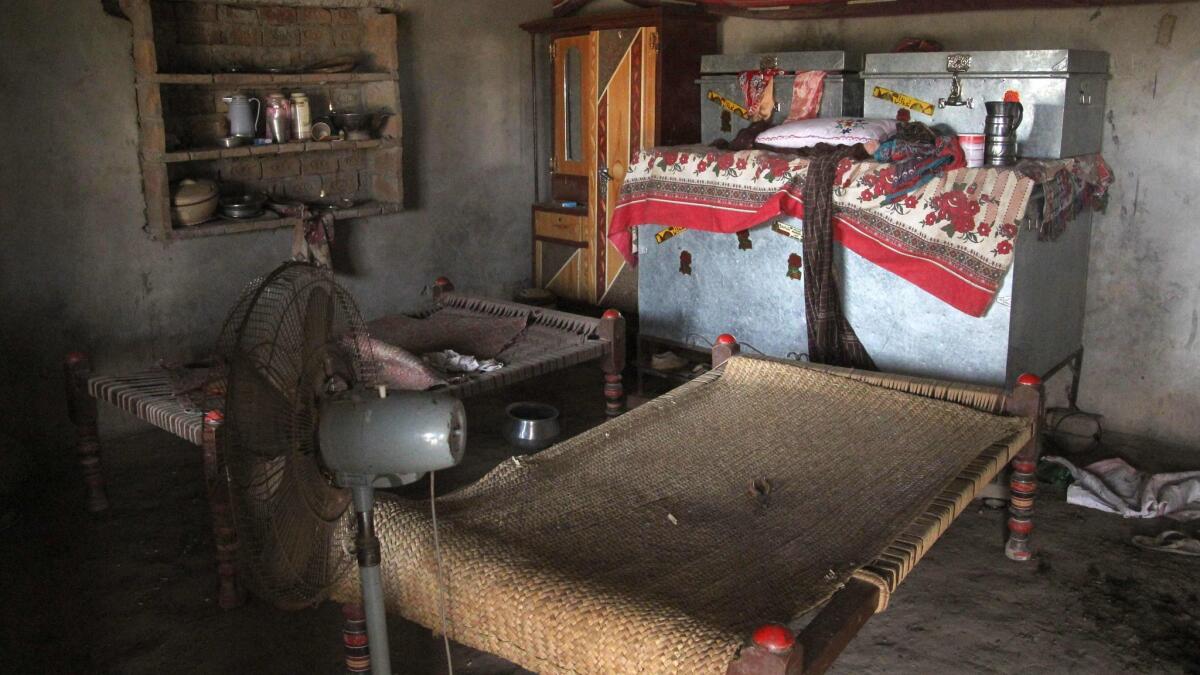Pakistan arrests 28 people after ‘revenge rape’ of teenage girl

- Share via
Reporting from ISLAMABAD, Pakistan — Mohammad Ashfaq, a villager in Pakistan’s Punjab province, came to the village council with a harrowing complaint: His 12-year-old sister had been raped by a 15-year-old boy, a distant cousin.
The council, or jirga, prescribed an equally harrowing punishment: Ashfaq, 20, should publicly rape the boy’s sister, who is 16.
Ashfaq carried out the punishment in a case of “revenge rape” that has shocked Pakistan and reached all the way to the country’s Supreme Court.
Police have arrested 28 people in a village outside the city of Multan, in southern Punjab, including the head of the council, which included family members of both alleged rapists.
The 15-year-old was also arrested, but police were still searching for Ashfaq, said Shahida Nasreen, a senior police official in Multan and head of the Violence Against Women Center.
“Honor crimes” are common in Pakistan, where villagers often use violence to punish those seen to have sullied a family’s reputation. The government has vowed to end the practice of honor killings of women who marry without the approval of their male relatives.
The case in Punjab came to light July 20 when the boy’s family reported it to police, but it was nearly a week before arrests were made.
Shehbaz Sharif, Punjab’s chief minister, suspended Multan’s police chief and the head of the local police station for what he termed “extreme negligence.”
“All culprits will have to face the law,” Sharif said.
The chief justice of the Supreme Court said it would take up the case and ordered Punjab police to submit a report.
The case bore disturbing similarities to a 2002 incident in which a woman, Mukhtar Mai, was gang-raped by a local jirga in the same area for a crime allegedly committed by her male relatives. The perpetrators were convicted and sentenced to death, but all but one were later freed by higher courts.
Mai told The Times on Thursday that she had lost sleep over the latest crimes.
“I can understand the situation of both girls. I have gone through it,” she said.
“This incident shows the failure of the state and society. There are laws, but police don’t implement them while courts don’t dispense justice. What do you expect? These local influential [people] have the support of political elite and police. These are not isolated cases.”
Jamshed Rizwani, a veteran journalist in Multan, said many crimes against women in the area went unreported.
For the record:
4:34 a.m. June 18, 2025An earlier version of this article said Mukhtar Mai commented on the case Friday. She spoke on Thursday.
“Most of these areas are governed by tribal traditions,” Rizwani said. “These districts are among the most backward areas of the country when it comes to education and health indicators.”
Special correspondent Sahi reported from Islamabad and Times staff writer Bengali from Mumbai, India.
Follow @SBengali on Twitter for more news from South Asia
UPDATES:
3:52 p.m.: The name of the 15-year-old suspect was removed. The Times generally does not publish the names of juvenile crime suspects unless they are charged as an adult.
10:15 a.m.: This article was updated with additional details.
This article was originally published at 7:05 a.m.
More to Read
Sign up for Essential California
The most important California stories and recommendations in your inbox every morning.
You may occasionally receive promotional content from the Los Angeles Times.














